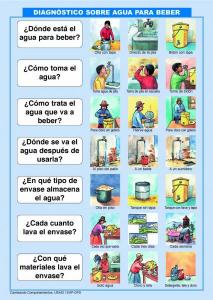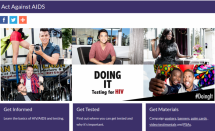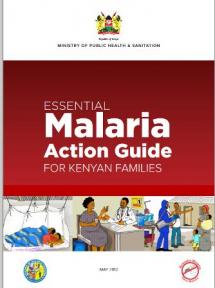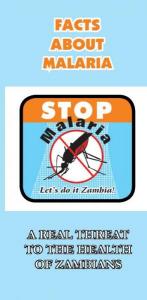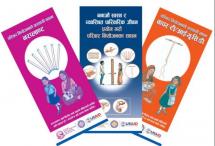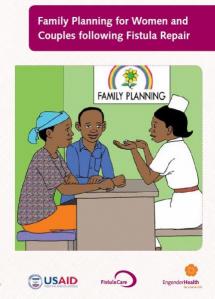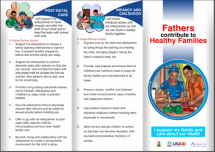Diagnostico Sobre Agua Para Beber [Drinking Water Assessment Card]
This card is part of a set produced by projects in Peru and Nicaragua aimed at reducing diarrheal disease incidence, even in communities with adequate latrines and piped water.
In Peru, the project produced assessment cards, counseling cards, posters, other reminder materials, a counseling guide, photo ID cards for the promoters, leaflets, and various forms. The Peru project also developed audio dramas that were played and discussed in groups or which individuals could listen to on hand washing, latrine use, safe water, and hygiene. In addition to these communication activities, after learning about families’ difficult access to essential water and sanitation products, both the Peru and Nicaragua projects worked with communities to organize a “community store” that sold products conveniently and at low cost.
Evaluation results after one year of behavior change activities with families in Peru included a significant decline in reports of diarrhea among children under five. Safe water handling increased from 36% to 84%, and many other practices had steep improvements. The approach followed in these projects was captured in the publication of Improving Health Through Behavior Change: A Process Guide on Hygiene Promotion.
Source: The Manoff Group, Inc., EHPII/PanAmerican Health Organization
Date of Publication: March 25, 2019
SIMILIAR RESOURCES
Tools
Examples
- COVID-19 Communication Materials for the Americas
- Social Behavior Change Programming for Public Health Emergencies: Lessons Learned from the USAID Zika Response in Latin America and the Caribbean
- A Learning Package for Social and Behavior Change Communication (Um Pacote De Aprendizagem Sobre Comunicação Para A Mudança Social E De Comportamento)
- Global Handwashing Day 2015 Social Media Toolkit
- The Behavior Change Framework
- Behavior-Centered Approaches to Improve Health Outcomes
- The Infection Control Symbol Package
- GESI Toolkit
- WASH FIT / WASH FIT Mobile
- Barrier Analysis Questionnaires
- Como Trataremos el Agua Para Beber (Water Treatment Reminder Card)
- Familia Sana Sin Diarreas, Con Agua Clorada, Latrinas y Manos Limpias (Diarrhea Prevention Reminder Card)
- Estrategia de Communicación Participativa: Fortaleciendo el Hogar y el Liderazgo para la Reducción de la Desnutrición Crónica e Incremento de la Higiene y Diversificación de Huertos en Guatemala [Participatory Communication Strategy Guatemala]
- Tabletas de Hierro [Iron Pills] Reminder Cards for Pregnant Women
- Strategic Malaria Communication Guide for Central America

